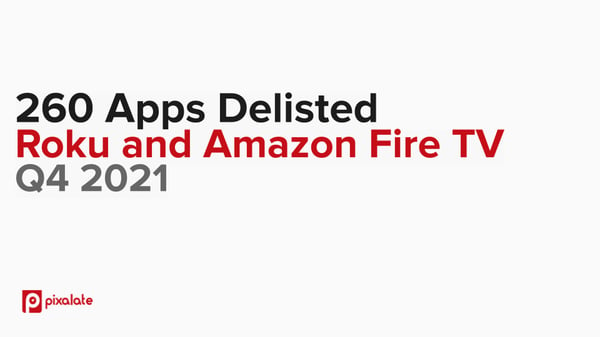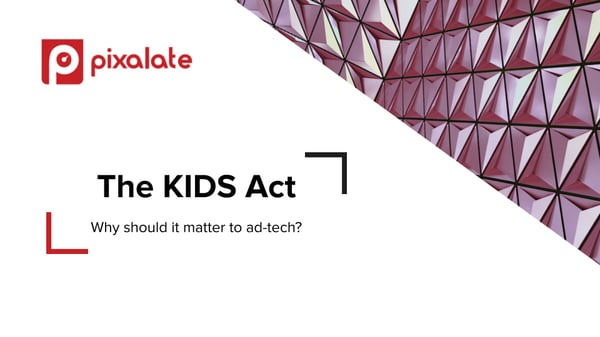

This week's review of ad fraud and privacy in the digital advertising space.

“Google has yanked dozens of apps from its Google Play store after determining that they include a software element that surreptitiously harvests data,” reported the Wall Street Journal.
According to the WSJ, a Panamanian company named Measurement Systems S. de R.L. wrote the code. Two researchers — Serge Egelman from the University of California, Berkeley, and Joel Reardon from the University of Calgary — first identified the code.
Pixalate also worked with the WSJ to analyze several apps suspected of harvesting consumer data. The WSJ wrote:
“The Measurement Systems SDK was in other popular Android consumer apps, including weather apps, QR code scanners and the highway-radar detection app. Pixalate, a third-party company that monitors app analytics, provided the Journal with data about the geographical distribution of users of apps running Measurement Systems. One weather app that the code was running inside was particularly popular in Iran.”

According to Pixalate’s data, 260 CTV apps were delisted over Q4 2021 across Roku and Amazon Fire TV app stores. The vast majority of them, 93%, were delisted from the Roku Channel Store.
15% (39 out of 260) of the delisted apps had programmatic ads, per Pixalate. According to Pixalate’s estimates, programmatic advertisers spent at least $250,000 on these apps in Q4 2021 prior to delisting. App-ads.txt files were found on fewer than 30% of the delisted apps (73 out of 260).

Pixalate researched the KIDS Act proposed in the U.S. Senate and dug into how this new bill would affect COPPA as it stands. The KIDS Act expands on certain provisions included in COPPA, enacted in 1998, including expanding the application of “Covered Users,” and disabling certain features if there is knowledge that children under 13 are using their platforms.

On Tuesday, March 29, 2022, Pixalate’s SVP of Public Policy and COPPA Compliance, Allison Lefrak, joined Alison Pepper of 4A’s and Mamie Kresses of CARU, for a webinar to discuss consumer privacy and COPPA (Children’s Online Privacy Protection Act) compliance in the programmatic advertising space.
The panelists discussed best practices for data privacy and interest-based advertising, lessons learned from the Federal Trade Commission’s recent COPPA enforcement actions, the future of COPPA Safe Harbor Programs and predictions for what’s in store for privacy regulation in 2022, particularly for children’s privacy.
You can view the full webinar on Pixalate’s YouTube page [LINK].

The Verge reported on a massive data leak from the Russian food delivery app Yandex has exposed the private delivery addresses, phone numbers and instructions, including those believed to be a part of Russia’s secret police.
The article went on to explain that “Yandex Food, a subsidiary of the larger Russian internet company, Yandex, first reported the data leak on March 1st, blaming it on the “dishonest actions” of one of its employees and noting that the leak doesn’t include users' login information.”
*By entering your email address and clicking Subscribe, you are agreeing to our Terms of Use and Privacy Policy.
These Stories on Weekly Recaps
*By entering your email address and clicking Subscribe, you are agreeing to our Terms of Use and Privacy Policy.

Disclaimer: The content of this page reflects Pixalate’s opinions with respect to the factors that Pixalate believes can be useful to the digital media industry. Any proprietary data shared is grounded in Pixalate’s proprietary technology and analytics, which Pixalate is continuously evaluating and updating. Any references to outside sources should not be construed as endorsements. Pixalate’s opinions are just that - opinion, not facts or guarantees.
Per the MRC, “'Fraud' is not intended to represent fraud as defined in various laws, statutes and ordinances or as conventionally used in U.S. Court or other legal proceedings, but rather a custom definition strictly for advertising measurement purposes. Also per the MRC, “‘Invalid Traffic’ is defined generally as traffic that does not meet certain ad serving quality or completeness criteria, or otherwise does not represent legitimate ad traffic that should be included in measurement counts. Among the reasons why ad traffic may be deemed invalid is it is a result of non-human traffic (spiders, bots, etc.), or activity designed to produce fraudulent traffic.”



